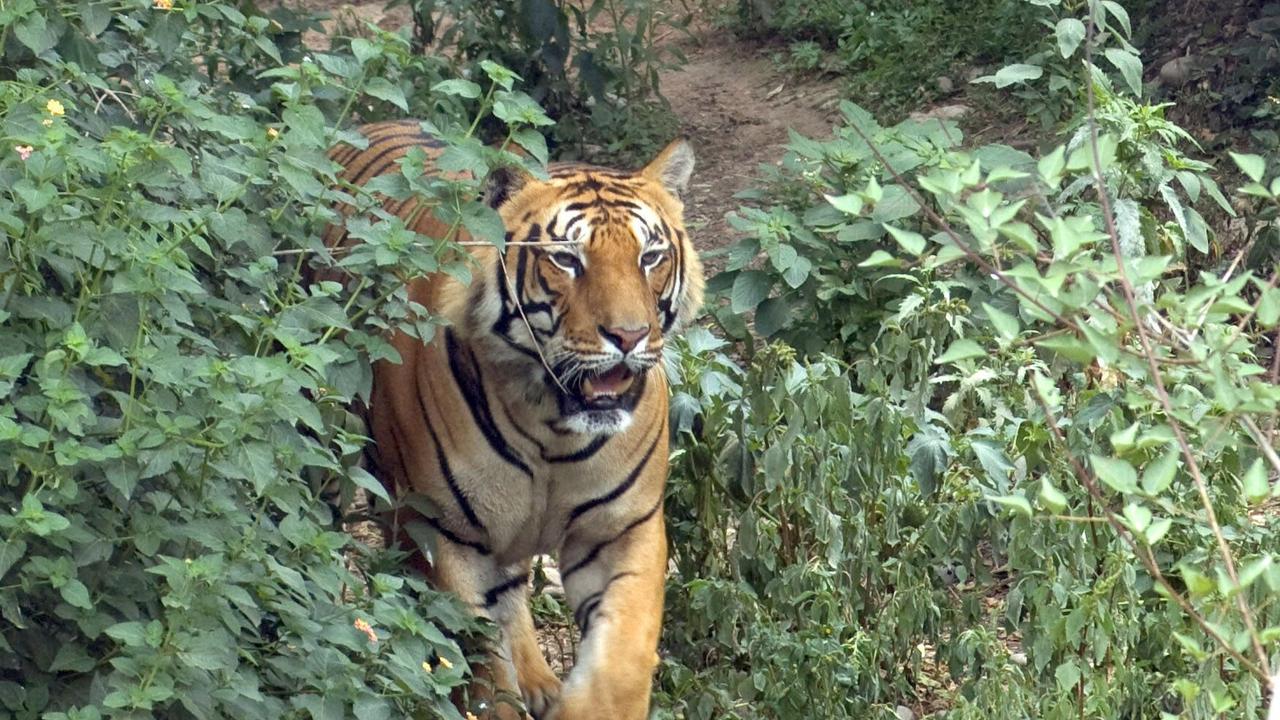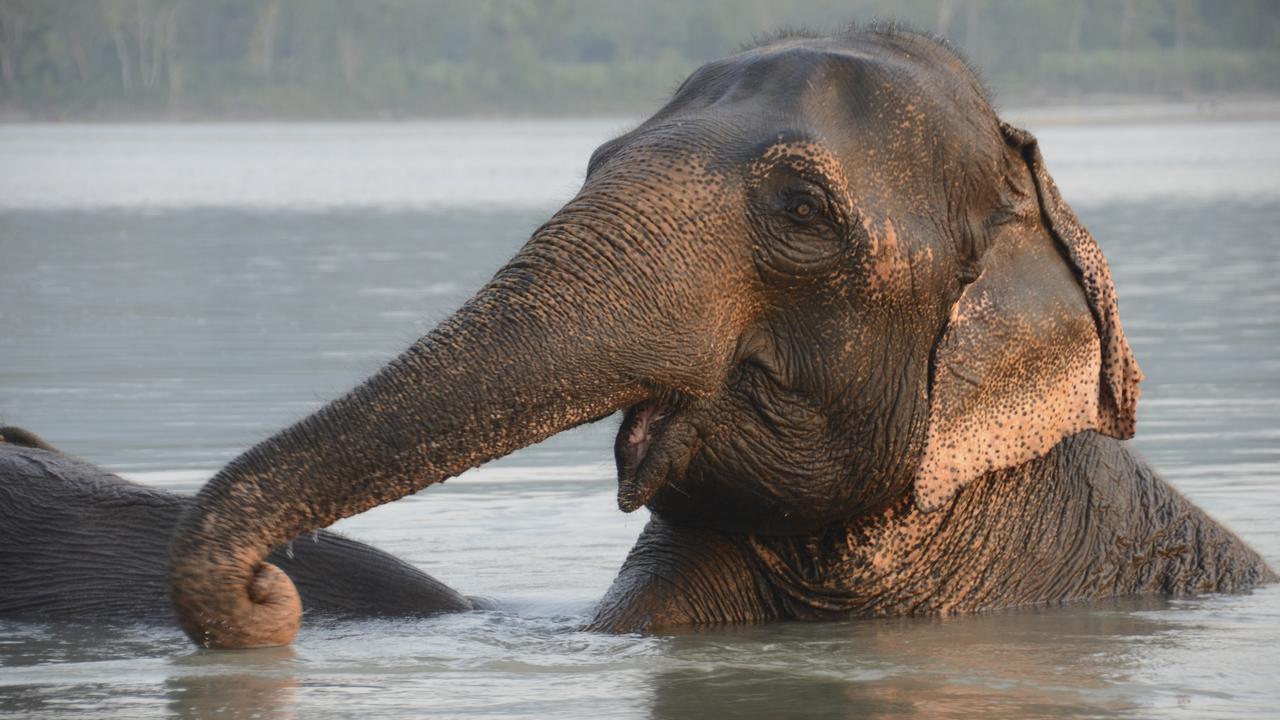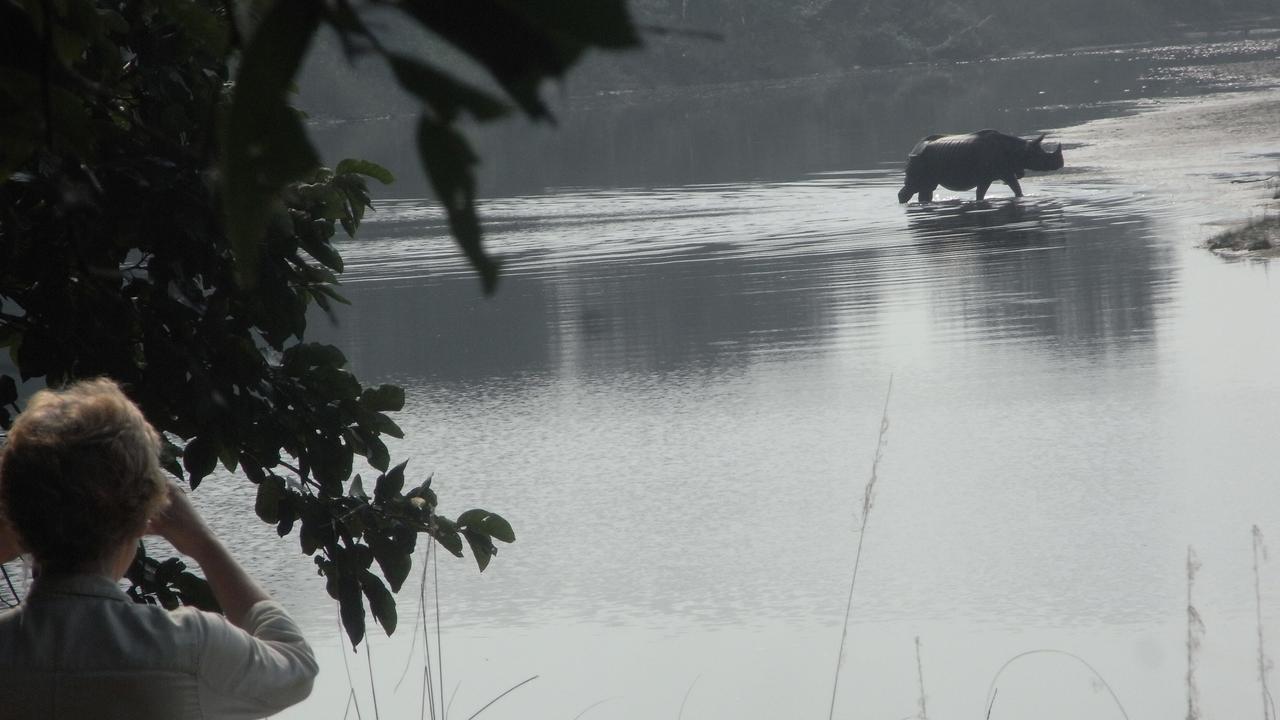Walk on the wildlife side
You certainly aren’t in Kansas anymore, but if you follow the yellow brick road to Chitwan - or take the longer but less-travelled trail to Bardiya - you’ll find yourself amid the lush, steamy jungles and languid waterways of Nepal’s National Parks.
These are home to rare Bengal tigers, leopards, one-horned rhinos, sloth bears, elephants, deers, crocodiles, hundreds of species of birds, and a whole host of adventures by foot, bike, jeep or raft.
Image gallery
National Parks in Nepal
Be inspired by the conservation success stories: one-horned rhinos have been rescued from the verge of extinction to a healthy population of over 600, and the northernmost herd of blackbuck deer has grown from nine to over 300.
Explore the National Parks’ dense jungle and river network on foot, by bike, in a canoe or jeep. You’ll be surrounded by the calls of roosting birdlife, chirping insects and foraging wildlife.
Sleep with just a layer of canvas between you and the wilderness in a safari tent, or gain the higher ground in a treehouse to the accompaniment of the sounds of the night jungle.
Float past crocodiles on the mudflats as you keep your eyes peeled and fingers crossed for a glimpse of the rare Gangetic River dolphin.
Follow safely on foot behind a mahout and their elephant as you enter rhino and tiger territory with the best bodyguards known to the jungle.
Stay with local Tharu or Magar families, or bike to remote villages such as Tikapur to learn about their culture.
Chitwan or Bardiya
While both Chitwan and Bardiya can be reached by flight or road, Chitwan is easily the most accessible. Those prepared to travel that bit further can enjoy the tranquillity of Bardiya’s remote charms.
Stay in the ‘heart of the jungle’ at Chitwan
Covering nearly 1,000 km2, this flagship National Park is home to around 50 species of mammal and 500 species of bird. The name in Sanskrit means ‘heart of the jungle’ and it certainly is a well-loved way to experience Nepal’s wildlife.
Alongside walking, jeep and canoe safaris you can visit the Crocodile Breeding Centre to see endangered gharial and marsh mugger crocodiles, learn from mahouts caring for rescued elephants, and discover more about local life at the Chitwan Tharu Village.
We love to stay at:
This sustainable and responsible lodge, located serenely on the outskirts of Chitwan, offers rustic but welcoming lodge rooms and safari tents. Alongside the wildlife experiences and conservation initiatives, the lodge contributes to local communities and encourages you to visit nearby Tharu villages to learn about their heritage.
Chitwan Community Homestays
To immerse yourself fully in the life of the Tharu or Magar communities, stay in the simple, private cottages of the villages of Barauli or Shivadwar. Owned by local women, these allow you to help out in the kitchen and enjoy your breakfast with views of rice fields, fish ponds, and the nearby jungle.
Get away from it all at Bardiya
For those who prefer their wildlife ‘wilder’, the remote jungle on the Indian border way out west rewards the lengthy journey. A similar size to Chitwan - but much less visited - it offers the chance for undisturbed and tranquil safaris.
Explore the area around the Karnali River by raft, bike, jeep or on foot to catch sight of the rare Gangetic river dolphin, duck as hundreds of bats emerge into the evening sky, and share the jungle at Khairpur with herds of endangered blackbuck deer. You’ll also take in river gorges, beautiful white beaches, rice terraces, wheatfields, and remote mountain villages.
We love to stay at:
The Tiger Tops team run this peaceful pocket of understated luxury in an unspoiled area. Local craftsmen used natural materials to create the lodge and it is powered by solar energy, with a kitchen powered by an organic farm.
Bardiya Community Homestay
Stay in a Tharu village in Dalla where the accommodation is owned by local women who give 15% of their income back into a community fund. They can introduce you to a local guide and forest ranger to spend a night in a Machhan (watchtower) deep in the forest, with the atmospheric sounds of wildlife all around.




